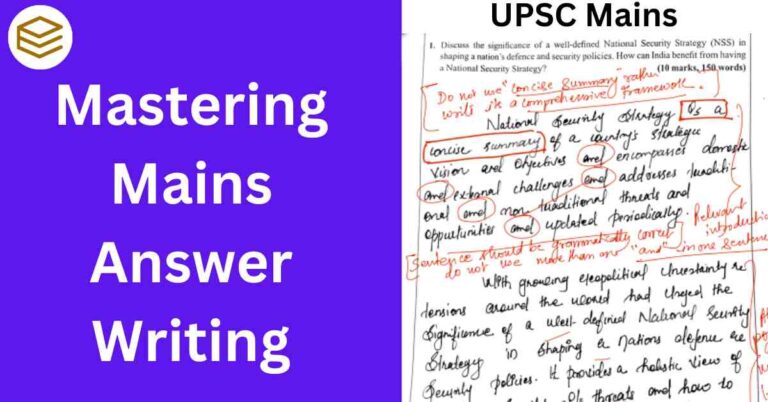January 25, 2026 7:46 am
- Q.1 Discuss the role of artificial intelligence (AI) in transforming public service delivery in India.
- Q.2 Analyze the potential of blockchain technology in enhancing transparency and accountability in governance.
- Q.3 Evaluate India’s progress in the field of space technology and its impact on national security and economic development.
- Q.4 Discuss the ethical and social implications of genetic engineering and CRISPR technology.
- Q.5 Analyze the role of digital literacy in bridging the digital divide in India.
Q.1 Discuss the role of artificial intelligence (AI) in transforming public service delivery in India.
Model Answer Guidance:
- Introduction: Define AI and its relevance to public service delivery.
- Main Body: Explain how AI can improve efficiency, transparency, and accessibility in sectors like healthcare, education, and law enforcement.
- Examples: Mention initiatives like AI-based predictive policing or AI in telemedicine during the COVID-19 pandemic.
- Conclusion: Highlight challenges such as data privacy and the digital divide, and suggest ways to address them for AI’s effective integration into public services.
Q.2 Analyze the potential of blockchain technology in enhancing transparency and accountability in governance.
Model Answer Guidance:
- Introduction: Briefly explain blockchain technology and its key features, like decentralization and immutability.
- Main Body: Discuss how blockchain can prevent data tampering, reduce corruption, and streamline processes in land records, supply chain management, and voting systems.
- Examples: Mention case studies like Andhra Pradesh’s pilot blockchain project for land records.
- Conclusion: Suggest the need for regulatory frameworks and cross-sector collaborations to harness blockchain effectively.
Q.3 Evaluate India’s progress in the field of space technology and its impact on national security and economic development.
Model Answer Guidance:
- Introduction: Briefly outline India’s achievements in space technology, with a focus on ISRO.
- Main Body: Discuss how space technology supports national security (satellite surveillance, missile systems) and economic development (telecommunications, weather forecasting).
- Examples: Cite missions like Chandrayaan, Gaganyaan, and NavIC, and their applications.
- Conclusion: Emphasize the need for continued investment and international partnerships to advance India’s space capabilities.
Q.4 Discuss the ethical and social implications of genetic engineering and CRISPR technology.
Model Answer Guidance:
- Introduction: Define genetic engineering and CRISPR technology and their potential applications.
- Main Body: Discuss ethical issues such as gene editing in humans, the potential for designer babies, and the impact on biodiversity.
- Examples: Mention the debate surrounding genetically modified organisms (GMOs) and CRISPR applications in disease prevention.
- Conclusion: Conclude with the importance of ethical guidelines and robust regulatory frameworks to balance innovation with societal values.
Q.5 Analyze the role of digital literacy in bridging the digital divide in India.
Model Answer Guidance:
- Introduction: Define digital literacy and the digital divide, especially in the Indian context.
- Main Body: Discuss how digital literacy can empower citizens, improve access to digital services, and foster inclusive growth.
- Examples: Mention initiatives like PMGDISHA (Pradhan Mantri Gramin Digital Saksharta Abhiyan) aimed at enhancing digital literacy.
- Conclusion: Emphasize the need for comprehensive digital literacy programs targeting rural areas and marginalized communities to bridge the digital divide.


